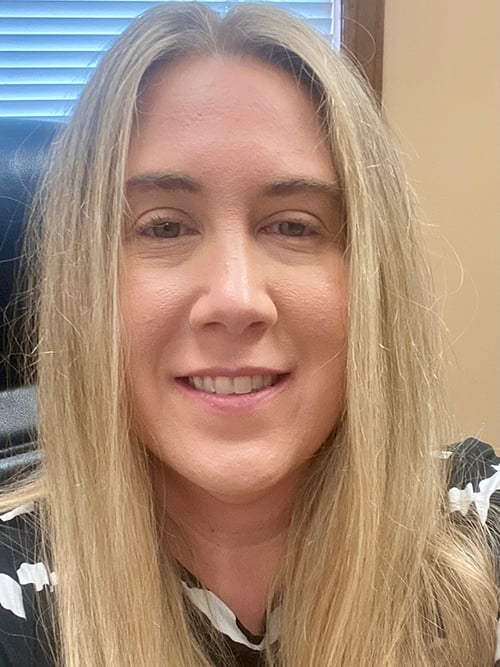“And He called to Moshe, and Hashem spoke to him from the ohel moed.” Rashi says that this teaches us that Hashem’s voice stopped, and didn’t project beyond the ohel moed. Not because the voice was low, for it says in Tehillim, “The voice of Hashem is powerful! The voice of Hashem is majestic! The voice of Hashem breaks cedars.”
It seems from Rashi that even though Hashem’s voice was booming when He spoke to Moshe in the ohel moed, it didn’t project beyond that limited scope. Rav Moshe Feinstein, zt”l, however, asks: If Hashem’s voice would only remain within the ohel moed, then why did it need to be so loud? It would have sufficed for it to be low! Indeed, it would seem—as Rav Yaakov Neiman wonders—that this seeming miracle of Hashem’s booming voice remaining confined within the ohel moed is useless! Would Hashem just perform a miracle for no purpose?
Likely, it happens to all of us: We may be preoccupied, or our minds are focused on something, and we simply just don’t hear the noisy traffic outside. We are thinking deeply about something, and we don’t hear the person next to us ask us a question, etc. The sounds, the voices and noises are there. But, we just don’t hear them. Similarly, but from a more spiritually-oriented stand-point, a person may be holding on a spiritual level where they may be either unable, or not willing, to hear Hashem’s messages that ring and boom throughout the world, or within our personal sphere of life—be it in the facade of current events, nature or those daily “coincidences” that we experience; And sometimes, they may occur and verberate through our very conscious. Is it that Hashem’s voice “stopped” before it reached us, or has it essentially reached us, but we just didn’t hear it?
Blending them together, Rabbi Feinstein and Rabbi Neiman seem to offer similar explanations, which I think could be understood along the following lines: When Rashi says that Hashem’s voice did not extend beyond the ohel moed, this could be teaching us that those who didn’t live their livese on an “ohel moed scale,” did not hear the voice. In theory, the rest of Am Yisrael could have heard it as well—if they were on the right level; if they really wanted to; if they would have brought themselves to a greater degree of spirituality and living a life of “ohel moed mode.” But only Moshe reached that lofty zone—so he heard it. So it wasn’t necessarily a miracle that the voice remained confined, since it could be that it indeed powerfully projected far beyond a small physical space, but only if one was “in the ohel moed”—if he lived an “ohel moed oriented life” could he hear it. Hashem’s voice wasn’t reduced but remained loud, and the rest of Am Yisrael—in theory—could have heard it if they were on the right spiritual level. (see “Kol Rom,” Vayikra; and “Darkei Mussar,” Vayikra).
Perhaps then, Hashem’s voice wasn’t just for Moshe, but for everyone. At times, we might not hear Hashem’s “voice,” but that doesn’t mean it doesn’t exist. Every Jew is, perhaps, capable of hearing and having Hashem’s voice—the way He communicates and the implied messages to take from it—penetrate his being. We might just need to be on the right level, or, we might just need to “tune in” to hear it. Famously noted, the letter “aleph” in “Vayikra” (“And He called”) is uniquely small. Why?
In Likutei Moharan by Rav Nachman of Breslov, its written: “A Jewish person must always focus on and ponder the intellectual depth of every thing and matter, and connect himself to the wisdom and inner intelligence that exists in everything, in order for it to inspire him to come close to Hashem…” The very basic idea here is that a Jew is to see Hashem’s wisdom, providence and glory, in every single matter in life, and engaging as such can draw a person closer to Hashem. Based on this, the sefer Zot HaTorah explains that since nothing in the world can exist without Hashem, so when a person lends his ear to listen to the inner voice that resonates within every facet of creation, then he can hear Hashem’s voice. Rav Nachman elsewhere states that every matter in the world “screams” of Hashem’s glory, as it is stated (Yeshaya, 6:3), “The whole world is filled with His glory.” Hence, Hashem is always calling to us and hints to us to come close to Him. “Aleph” is a reference to Hashem as the “Alufo shel olam, Master of the universe.” Thus, the aleph being small teaches us that Hashem—the “Alufo” shel olam—is hidden in every facet of creation and the world. If we would seek Him out, then we could hear Him speaking to us.
Pirkei Avot states, “Every single day a Heavenly voice emanates from Mount Horeb (Har Sinai), proclaiming and saying, ‘Woe to them, to the people, because of [their] insult to the Torah!’” (6:2). A daily occurence! Do we hear this Heavenly voice? Rav Elyah Dessler quotes the Ba’al Shem Tov who said that from this Heavenly voice dangle small thoughts of repentance that present themselves to a person (Michtav M’Eliyahu, 1, p. 234). The voice of improvement, growth and connection to Hashem penetrates our essence. If we would tune in, we might hear it.
Hashem is here, Hashem is there and Hashem’s voice truly rings out from everywhere; In Hashem’s desire for us to attain a closer connection to Him, He calls out to us, whether it’s through the external world around us—nature, world events, daily life—or internally,within our own conscious. If we would tune in and listen up, then we may hear it.
Binyamin is a graduate of Yeshivas Rabbeinu Yitzchok Elchanan, and of Wurzweiler School of Social Work.













